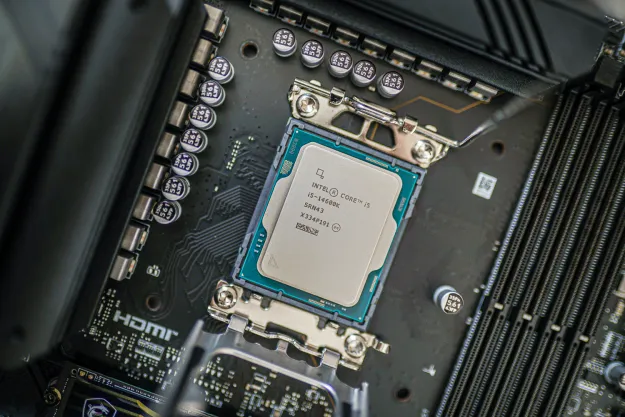Benchmarking company Principle Technologies found itself in some controversy in its testing between AMD and Intel’s latest ninth-generation chipsets. The firm will be re-testing the processors and will address earlier issues which skewed certain technical testing results.
Though the original benchmarks report in question was paid for by Intel, Hardware Unboxed was the first to point out that the original hardware testing was leaning toward one chipmaker over the other. In testing 19 games, Principle Technologies reportedly used a less powerful CPU cooler when testing the AMD’s Ryzen 7 2700X, only overclocked the RAM on Intel’s chipset, and didn’t leverage all the cores onboard the AMD Ryzen.
Intel initially stood by testing results, issuing the following statement on October 9: “Principled Technologies conducted this initial testing using systems running in spec, configured to show CPU performance and has published the configurations used. The data is consistent with what we have seen in our labs, and we look forward to seeing the results from additional third-party testing in the coming weeks.”
In a statement published online, Principle Technologies said the testing was done to “create as level as a playing field as possible for comparing AMD and Intel processors as the majority of the gaming market would likely use them.” The benchmarking firm provided an interim report on the testing and will be pushing out more testing data soon.
“We built and configured 16 systems for this comparative testing; we had two of each processor/motherboard configuration. We matched all components when possible, the only variances being the motherboard, CPUs, and CPU coolers. We will continue to be transparent and responsive to any questions,” explains Principle Technologies
Benchmark testing is inherently controversial, so it makes sense to see Principled Technologies come out and explain itself. That is especially important when Intel is claiming that the Intel Core i9-9900K is the “best gaming processor yet.”
Updated on October 12, 2018: We clarified the results of Principles Technologies benchmarks as the firm is seeking more data in its testing. We will update this article with a link to the full updated Principle Technologies report when it is available.
Editors' Recommendations
- Gamers are reportedly returning Intel Core i9 CPUs in droves
- Intel just launched the ‘world’s fastest’ CPU
- Intel may have a monster new CPU coming soon
- Apple’s M3 Max appears to keep up with Intel’s top desktop CPU
- I tested Intel’s Core i5-14600K against its cheaper sibling. Don’t waste your money



